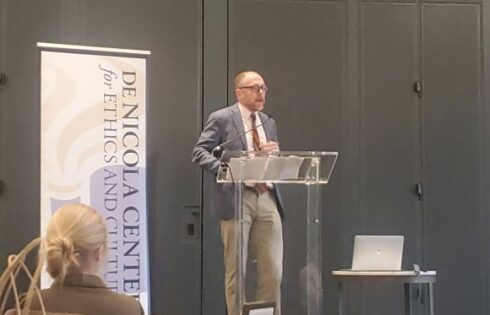 Texas Gov. Rick Perry raised eyebrows in his State of the Union address earlier this month when he challenged state universities to “develop bachelor’s degrees that cost no more than 10,000, including textbooks.”
Texas Gov. Rick Perry raised eyebrows in his State of the Union address earlier this month when he challenged state universities to “develop bachelor’s degrees that cost no more than 10,000, including textbooks.”
Perry’s not alone in this. At a conference in San Francisco in 2010, Bill Gates said that a four-year bachelor’s program should cost $2,000 per year, not $20,000.
After a year in which the national student loan debt eclipsed national credit card debt, the call for the $10,000 degree, the question is: Will any school even decrease tuition?
Perry’s challenge certainly bucks the trend in higher education. For the 2010-2011 school year, private school tuition increased, on average, 4.5 percent—but public schools, facing tightening state budgets, saw up to 30 percent tuition increases in some states.
“I think we overemphasize going to college,” said Richard Vedder, professor of economics at Ohio University and director of the Center for College Affordability and Productivity.
Vedder argues that if fewer students attended universities, tuition would not be as expensive. In the fall, Vedder wrote a piece for the Chronicle of Higher Education examining the 17 million Americans who attended at least some college but work in jobs that do not require degrees.
The worth of an undergraduate degree received renewed attention in the fall, with several viral links, similar in tone to Vedder’s 17 million Americans, questioning the worth of an undergraduate degree.
A recent study by New York University researchers of more than 2,300 undergraduates reveals that by the end of their sophomore year, 45 percent of students show no significant improvement in writing, complex reasoning and critical thinking. The students in the study earned, on average, a 3.2 grade-point average.
NYU students’ loan debt is $659 million, which is the largest debt accumulation held by students at any private university. For the 2010-2011 school year, NYU’s tuition was $40,000; room and board was $13,500.
Recently, NYU students as well as MTV star Andrew Jenks led a demonstration called “Casualties of Debt,” where they paraded around Washington Square Park wearing t-shirts written with the amount in student loans each owes.
One private school, however, is trying to reverse that trend. The University of the South, known as Sewanee, has decided to reduce tuition and fees by ten percent for the 2011-2012 academic year.
“The economic climate has changed in recent years, and higher education’s approach to how families pay for their children’s educations must change with it,” said Sewanee spokeswoman Laurie L. Saxton. “The days of high fees and high discount rates are unsustainable.”
Although Saxton says the university will not lay off faculty or staff, or cut programs, Sewanee “will exercise budget discipline.”
Sewanee is also changing how financial aid will be administered. Yet, even with the ten percent reduction in tuition and fees at Sewanee, the annual cost of tuition will be $32,020 for the 2011-2012 academic year.
In Vedder’s view, budget discipline is a chief component of reducing tuition.
“Universities spend so much money on things that don’t pertain to education,” said Richard Vedder, professor of economics at Ohio University and the director of the Center for College Affordability and Productivity. In order to reduce tuition, Vedder suggests that universities should “get rid of the indoor swimming pools and the rock walls” in addition to limiting the amount of majors and classes that have relatively no use in the real world.
The most economical school would be a “no frills, Walmart university” as he puts it.
In Texas, that’s the goal.
“Nobody is talking about everybody offering this low-cost, no-frills degree. We are talking about providing students an alternative and reinventing higher education,” Raymund Paredes, Texas Commissioner of Higher Education, told the San Antonio Express-News.
There has been a push to explore online universities and institute more online courses to reduce faculty costs. Former Minnesota Gov. Tim Pawlenty has made online courses, and the comparison to iTunes, a talking point on reducing education costs in the past. However, according to Vedder, the emergence of online universities among other factors has contributed to the diminishment of the college degree.
“We should probably encourage people to get other postsecondary degrees,” he says. “Spend a year learning to be a plumber or an electrician. The pay is good and you won’t run up debt going into it.”
Corina Cappabianca is a staff writer for the Washington Square News. She is a member of the Student Free Press Association.
Like The College Fix on Facebook / Follow us on Twitter




Please join the conversation about our stories on Facebook, Twitter, Instagram, Reddit, MeWe, Rumble, Gab, Minds and Gettr.